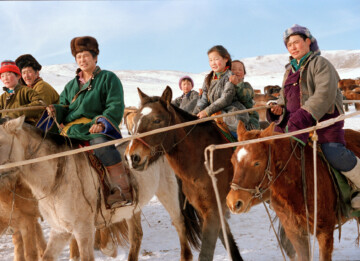
When Linda Kohanov researched the history of leadership across multiple cultures for her fourth book The Power of the Herd, she came across two unexpected insights that led to her fifth book The Five Roles of a Master Herder. First, she discovered that a large percentage of innovative leaders were accomplished equestrians. Alexander the Great, the Buddha, Katherine the Great, Elizabeth I, George Washington, and Winston Churchill were among those historically significant figures who exhibited exceptional horse training and riding abilities. As they gained the nonverbal skills to motivate powerful thousand-pound animals to temper their survival instincts in challenging situations, these people also developed the capacity to motivate large human populations to work together toward ambitious goals.
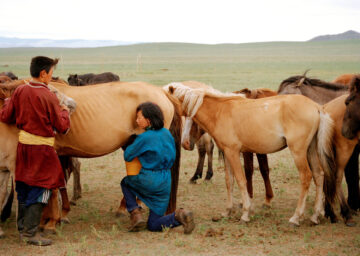
The second insight came from studying nomadic pastoral cultures around the world. These people keep herds of powerful animals together without fences and with very little reliance on restraints. To do so, they employ five roles of social influence, interchangeably, as needed. Pastoral cultures understand that among large herbivores like horses and cattle, the leader and the dominant are often two different animals. Masterful herders know when and how to employ the Leader and Dominant roles thoughtfully and purposefully for the good of the interspecies community, while also engaging the Sentinel and Nurturer/Companion roles liberally. Most importantly, they understand how to use power in nonpredatory ways, limiting the Predator role for special circumstances as nature intended: to keep life in balance with the available resources. From the animals themselves, these people learned to socialize aggressive stallions and bulls by using the dominant role in its nonpredatory form, and also guard the herd from lions and wolves, for the most part, without lethal violence.
These potent realizations inform a revolutionary model for modern humans to excel at home, work, school, and in wider community and social activism contexts. The Five Roles model is also essential to forming strong partnerships with horses and other animals. “It was a life changing moment to realize that leadership is only one of five roles people need to influence others in socially intelligent ways,” Linda says. “And so I came up with the term master herder, one that turns ‘power over’ definitions of mastery inside out and upside down.
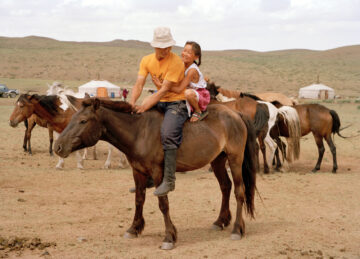
“A master herder develops exceptional self-mastery of survival instincts and impulses to control others. To act for the good of the herd and the tribe, this person must also master five roles of power and social influence. Most people become attached to one or two roles while abdicating the others. This creates much of the dysfunction we see in all our personal and professional relationships. Ultimately, a master herder is a strong, compassionate well-balanced leader who also acts as a caretaker and a guardian. He or she can stand up to adolescent dominant behavior, helping people and animals who overuse this role to learn to use their exceptional power in intelligent, life- and relationship-enhancing ways. As teenagers and adults in any social system gain proficiency in all five roles, bullying behavior lessens, and gentle, more compassionate people become effective protectors and advocates for others.”
An Innovative, Socially Intelligent Leadership Model
In 2016, actor, director, and accomplished horseman William Shatner attended Linda’s Five Roles workshop in Los Angeles. He called the model “an innovative and practical nature-based approach to leadership—and life. It’s not just for corporate executives. Parents, teachers, community organizers, film directors, and especially politicians would all benefit from learning these skills.”
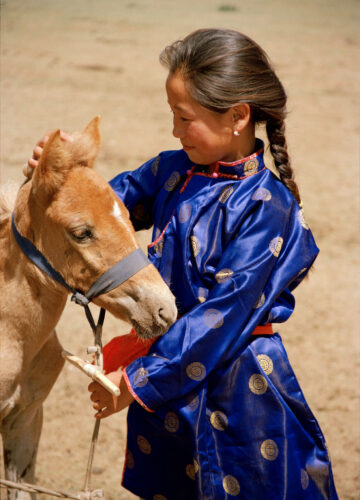
Linda and her carefully trained Master Herder instructors have presented this model to large corporations, small businesses, universities, public schools, health care and social service agencies, as well as equestrian, animal rescue and community organizations worldwide. You can now study the five roles in the comfort of your home or office through her new online course. Filmed in front of a live audience in Atlanta, Georgia, The Five Roles of a Master Herder not only covers how and when to use the roles, it explores in depth the dysfunctions that occur when people over-emphasize any one of these roles, helping make sense of aggressive or passive aggressive behavior at work, school, home, and at the barn. Most importantly, through questions and interactions with the audience, Linda shows how to handle power plays, break through resistance, and turn conflicts into opportunities for building understanding and trust in organizations large and small.
Right now, you can receive a special holiday discount of 30 percent off the Five Roles online course by entering the coupon code FIVEROLES30 at check out when you enroll at https://lindakohanov.com/master-herder/ (where you can also learn more about the course).
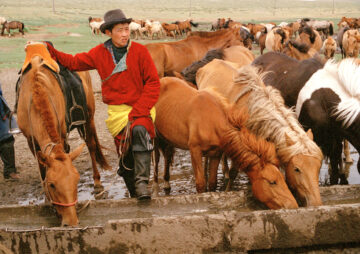
Linda also has two spaces left in her winter 2024 equine facilitated course on the five roles, which also teaches advanced skills in handling fearful or aggressive horses and people. For a workshop description, see https://eponaquest.com/workshop/the-power-of-the-herd-working-with-eponaquests-horses-to-master-the-five-roles/
All photos in this edition of Eponaquest News were taken by Liza F. Carter who lived with a Mongolian tribe, and witnessed directly how they enfold the five roles into their daily life with horses and other animals. Read about her adventures and see more images in the book Moving with the Seasons: Portrait of a Mongolian Family.
More Praise for the Five Roles Book and Workshops
”Changed my life and the life of everyone in the conference room. Explaining the differences between a dominant and a leader, and the usefulness of predatory power when balanced with nonpredatory power were real insights to understand how companies are working and how we can improve our efficiency. With great examples coming from the world of horses and traditional herding cultures, Linda explained the power of groups and how to build relationships that can enable any individual to steer and leverage large and powerful organizations.”
— Didier Tranchier, Director, Executive MBA Program “Leading Innovation in a Digital World” de l’Institut Mines-Telecom, Paris, France
“People were really thinking, ‘this is it; this makes so much sense; this is what I’ve been struggling with; this is why I’m clashing with the people I don’t get along with.’ The Five Roles model took all the personal-ness out of conflicts, misunderstandings, and differing leadership styles. It inspired people to move forward in a constructive, mutually-supportive way.”
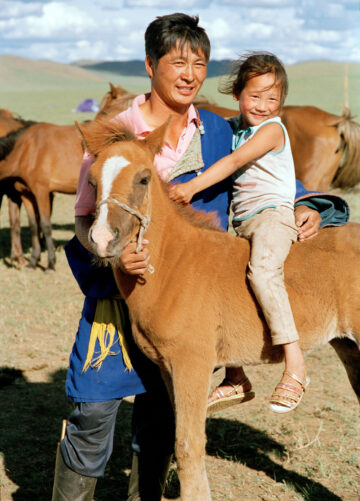
— Holly Harris Reid, Human Resources Director, Best Friends Animal Society, Knab, Utah
“Exceeded my expectations. As leaders in this organization, we are trying to find ways to help people to understand a new way of leading that is both kind and capable of helping us with a very bold mission to accomplish. People were intrigued, excited and inspired during the daylong indoor workshop. I’ve never seen smiles so wide. Those staff members who were able to attend the equine-facilitated learning sessions the following two days were exuberant. They were able to really articulate those areas where they needed the most help and practice some real solutions, and they were ready to make some major changes when they returned to work.”
— Patty Hegwood, Director of Visitors and Volunteers, Best Friends Animal Society
“We came away energized and eager to put these principles into practice. I would definitely recommend Linda’s work both for personal mastery and team building.” — Sarah Severn, Senior Director, Stakeholder Mobilization, Systems Innovation, Nike, Inc.
“Linda’s description of predatory power is perfectly analogous to the traditional war model of litigation, where vulnerabilities are sought out and preyed upon with the intention to win, with the resulting destruction of relationships. Conversely, the nonpredatory approach to power she defines guides us through resolution of conflict with curiosity and cooperation where safety is paramount, the vulnerable are protected, and relationships preserved.”
—Deanna Koebernick, BScAg, LLB, QMed, Registered Collaborative Family Law Lawyer and Mediator, Epona Law and Mediation, Edmonton, Alberta, Canada
“Unique and powerful. My staff of 30 attended. They were surprised to find how pertinent the information was to their work as loan officers, and relieved to know some of their individual qualities, sometimes seen as negative, made the department successful. The language gave them a new way to talk about how to lead and how to work together as a team.”
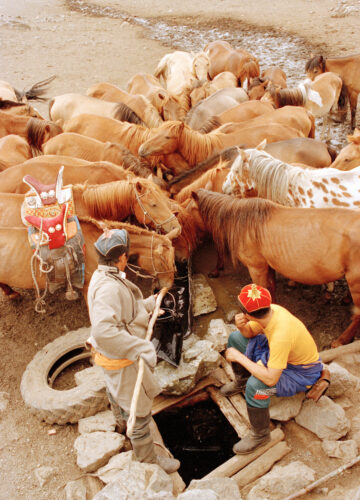
—Laurie Roberts, Chief Lending Officer, University Federal Credit Union
“An excellent framework for self-assessment and growth as well as strengthening interpersonal relationships.”
— Brenda Turner
“[The Five Roles Professional Assessment was] the first assessment I’ve taken that feels like I wasn’t forced to create a false choice or ranking. I love the broad and interesting integrations Linda has made between seemingly different worlds. The explanations and tools she has developed to communicate these skills are remarkable.”
— Sheri Miller
“This was excellent information in an easy to follow format. Paying attention to Linda’s clear teaching style was very helpful for working with my own children and the children I serve. The Professional Assessment provided excellent insight into both my conscious and my shadow patterns, as well as un-awakened potential gifts. I would love to work with this model further.”
— Kelly Crockett
“Provided a deeper understanding of people’s behavior which will allow for better interactions, less stress and angst, more productivity, less blame and judgment, and clearer insight as to how to help people develop skills that will allow them to live more in balance.”
— Barbara Beach
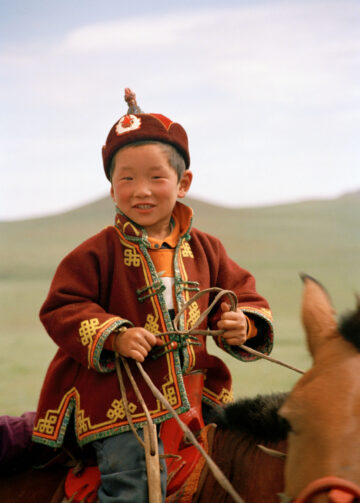
“The fresh approach of looking at roles that we can all learn to use in balance, as opposed to defined personality traits, is hugely helpful. The information is manageable and I’ll immediately be able to apply this work in my business.”
— Heather Ranger
“It just makes so much sense. I realize more and more that I can access all these roles every day.”
— Janet Murray
“Clearly, we need a new paradigm for the responsible use of power in our world. Linda has translated the effective leadership qualities exhibited within the herds she’s observed over years of research and hands-on living and working with horses in both their natural environments and in human/horse relational situations to create guiding principles that have the potential to create sustainability in all areas of human endeavor: the antithesis of the inefficient and destructive forms of power in the guise of leadership so prevalent in our culture today
— Jan Case Koerwitz
“An incredible experience! I learned to become aware of how I access my personal power, where I had blocks to that and how to shift into being able to use the right amount power for any given situation.
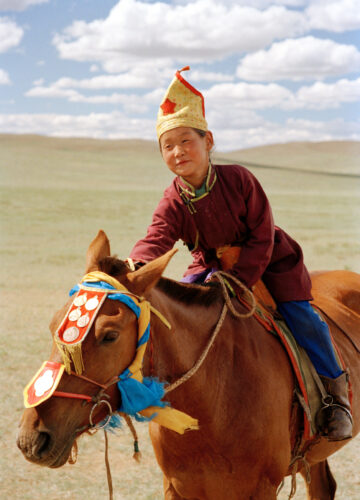
— Devin Graham
“A true visionary. Linda’s exhaustive research in the areas of social and emotional intelligence and the evolution of consciousness is necessary if humanity is to survive and thrive beyond the 21st Century. Her attention to the intrinsic need for systemic cultural, social, and emotional growth, informed by the wisdom of horses and the power of the herd, supports widespread, true and lasting change. With the real-life application of the tools she presents in her workshops, Linda gives each of us the ability to be the change we wish to see in the world, creating a ripple effect of limitless reach.”
— Halina Kowalski